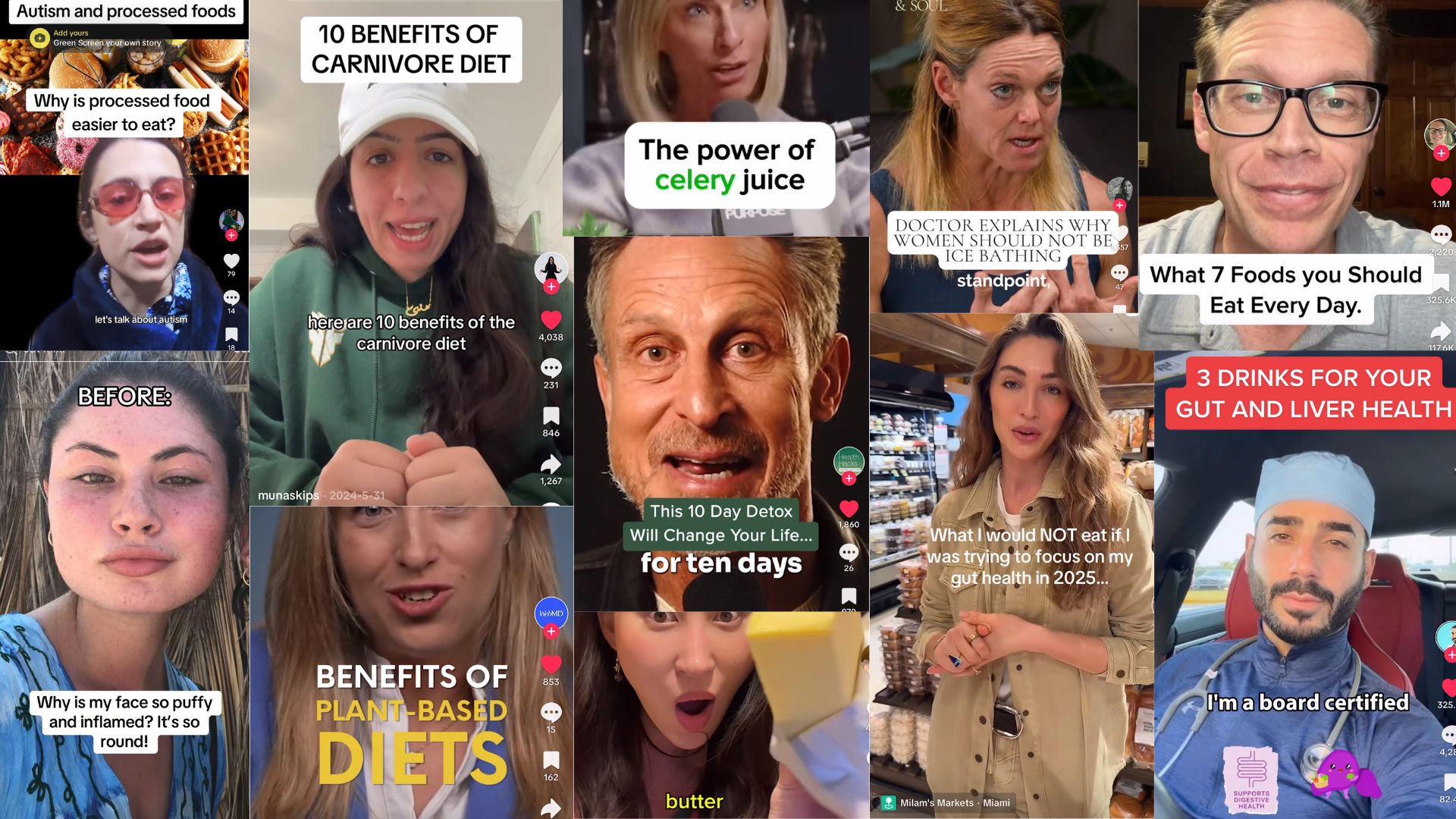By Alexandra Donovan
At 3:17 a.m. — a TikTok post from 16-year-old Isabella’s favorite “gut health expert” explaining how her afternoon chocolate craving might signal parasites popped up on her phone. Isabella then crept downstairs and picked up a jar of wormwood extract that claimed to kill parasites, based on what she saw on a TikTok post.
Hours later, she woke up in a pool of sweat with bloodshot eyes.
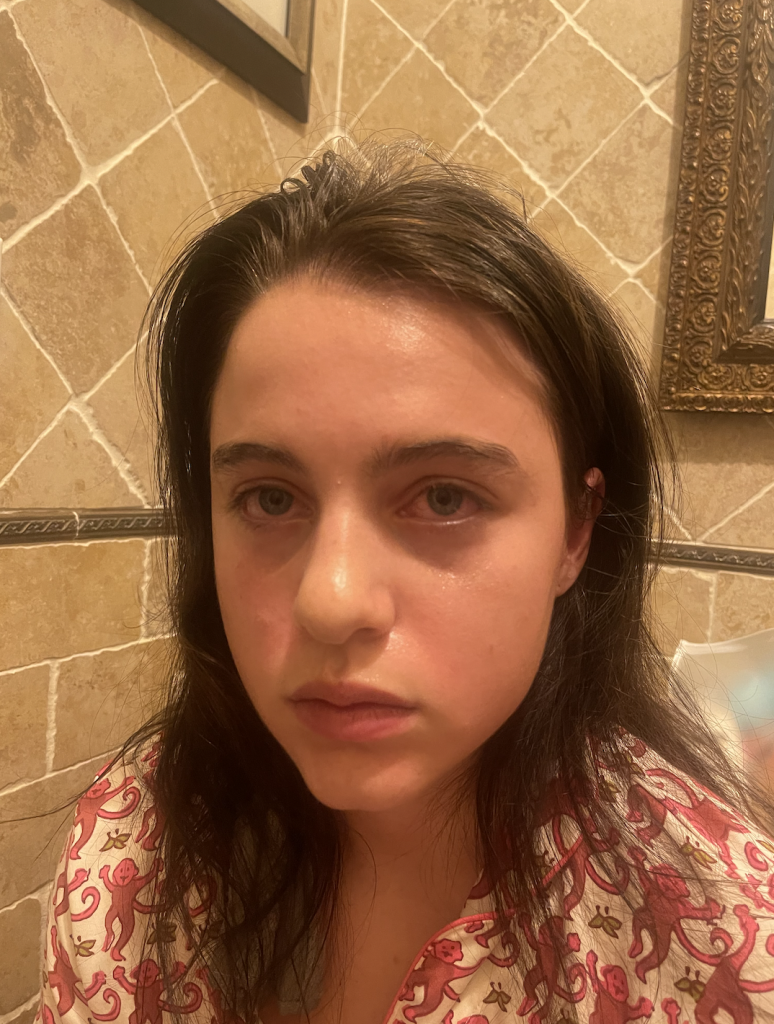
she took without a physician’s guidance (Courtesy of Marion Donovan)
“I spent $350 on parasite cleanse supplements that made me violently ill,” recalls Isabella. Her mom took her to the hospital in a panic, trying to understand what Isabella ingested and if she needed to call poison control.
“My doctor later told me there was absolutely nothing wrong with me craving chocolate, except the anxiety I had from consuming too much health content, ” Isabella said.
Isabella is my sister, and she is not alone. A growing movement of former “wellness warriors” is now advocating for what might seem counterintuitive in our information-saturated era: consuming less health content — not more.
Thirty-three percent of surveyed Gen Z’s, globally, and 26% of millennials used social media to discuss illness. 20% of Gen Z surveyed asked their doctor for a treatment they had seen an influencer or their friend say they have received.
In this same study, they found that when it comes to chronic conditions, 30% of people of all ages, globally, did not see their doctor as an information source. At the same time, an AI analysis of over 67,000 videos on TikTok showed that only 2.1% of nutrition information given was accurate.
A digital detox approach to wellness is gaining traction as evidence mounts that consuming excessive information on health may be making us sick.
But much of America is already sick. Last fall, almost 75% of U.S. adults over the age of 25 were classified as “overweight” or “obese,” with a Body Mass Index (BMI) of 30 or above. The situation appears almost worse for teens and young adults aged 15 to 24, when they are supposed to be their most active. Almost half of them are now considered either “overweight” or “obese.” Meanwhile, the obesity rate for these teens and young adults was only 29% in 1990, according to the New York Times.
With Robert F. Kennedy Jr. just months into his new appointment as the United States Secretary of the Department of Health and Human Services, and the launch of his “Make America Healthy Again” Commission, more regulatory changes are expected based on his pledge to tackle chronic disease. While some of these may help lower America’s staggering rates of obesity and cardiovascular disease, some fear government regulation over vaccinations could grow due to Kennedy’s past anti-vaccine actions before he became a politician.
Although it seems unlikely that vaccination mandates would be banned on the federal or state levels, RFK Jr.’s vaccine fear-mongering could have an effect on families choosing to opt-out of vaccinating their children, leading to potential disease outbreaks.
Kennedy Jr. has been promoting conspiracy theories about vaccines since the early 2000’s, all of which have been debunked by certified health organizations, such as the Centers for Disease Control and Prevention, the World Health Organization and more.
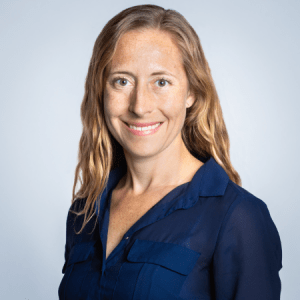
(Photo Courtesy of USC Mann)
“We are going backwards,” Dr. Amanda Burkhardt, who holds a PhD in Immunology from UC Irvine and feels strongly against RFK Jr.’s vaccination stances. “People may not see why researching particular vaccines is important right now. But in 5 or 10 years it’ll be too late to do anything about it.”
Meanwhile, the Trump administration seeks to cut the Department of Health and Human Sciences’ (HHS) budget by $33.3 billion. The National Institutes of Health (NIH), which supports science research, conducts its own studies, and puts forth reliable health information to the public, will have its budget cut by $18 billion.
“It’s a really terrifying time to be in STEM, especially academic STEM right now,” said Burkhardt, whose research focused on developing innovative vaccines and immune-enhancing adjuvants.
“I’m seeing this with colleagues and friends and family who are doing Biomedical research. People don’t know about funding. They don’t know if they’re going to be able to keep the students that they have, or if they’re going to be able to accept new ones.”
Although vaccines haven’t yet faced direct regulatory changes, we are seeing a broader trend: increasing scrutiny and regulation around health-related ingredients. In October 2023, California enacted the “Skittles Ban” under the California Food Safety Act, prohibiting food additives including brominated vegetable oil, potassium bromate, Propylparaben and Red Dye 3, which were ingredients in U.S. Skittles.
This comes 35 years after these additives were banned from cosmetic products because studies showed they caused cancer in rats. These changes come alongside research suggesting that there are potential links between synthetic food dyes and behavioral issues in children, including hyperactivity and attention deficits.
Two weeks ago, the FDA announced a plan to phase out the remaining petroleum-based synthetic dyes from our food supply by the end of 2026, as well as accelerate the removal of the Red Dye 3.
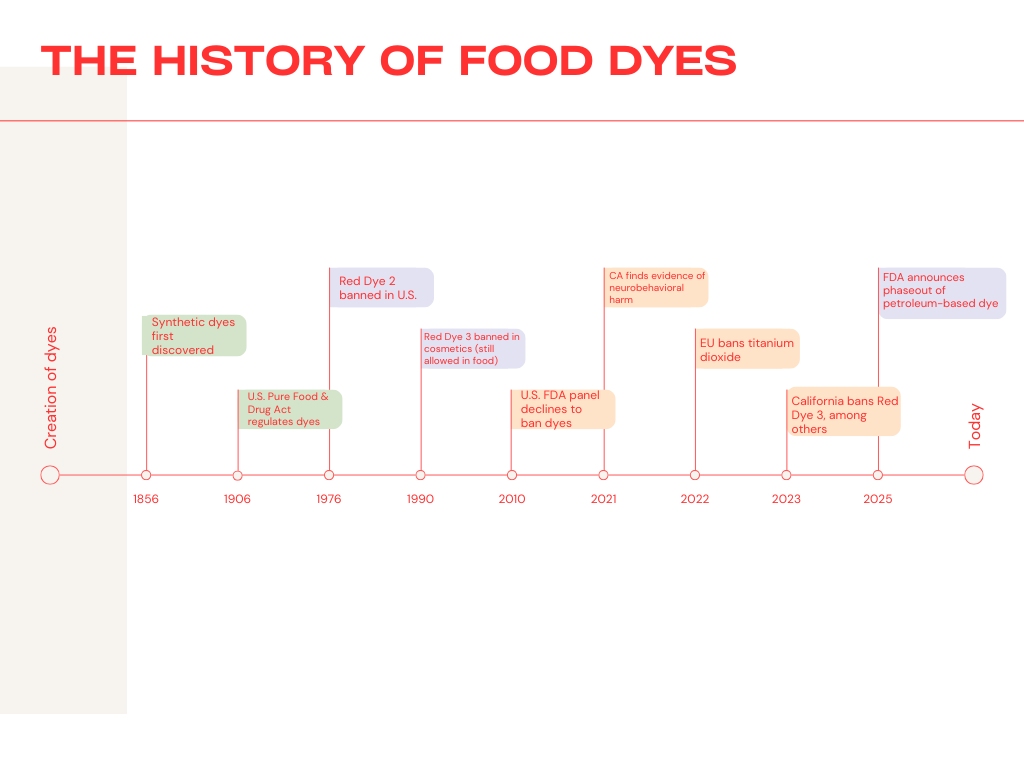
Khalil Rafati, the founder of SunLife Organics, is concerned about the ingredients going into America’s food system and how it is affecting our health as a country.
“We are sick and fat and bloated and disease-ridden because we are being fucking poisoned,” said Rafati, who questions why food companies maintain different standards across borders. Skittles are a great example of a food banned in the European Union in 2022 for its use of titanium dioxide.
“What the fuck are you doing putting these food dyes that cause cancer and putting in these chemicals, but in Canada, you sell a product that’s the complete opposite and different? And in Europe, you don’t sell [it], but in the U.S., you’re selling us this poison?”
Rafati is trying to be part of a positive change in America’s food system, through SunLife Organics, and is supportive of RFK Jr.’s plans to revamp America’s food supply.
“I don’t give a fuck if you agree with him about the vaccines or not,” Rafati said. He believes that Kennedy Jr. wants people to understand the dangers of what is being put into our food.
Rafati’s passion for health stems from personal experience. After struggling with severe addiction in Los Angeles during the 1990’s, he found himself living on Skid Row and weighing just 109 pounds.

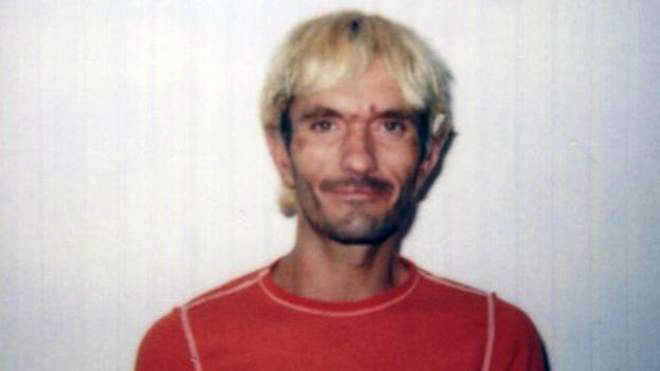
“I just gave up. Sometimes in county jail, sometimes in a mental hospital,” he recalled of his lowest point. “I traded my whole life for a few minutes of pleasure and that superseded my whole desire to get better.”
His rehabilitation journey led him to discover nutrition’s power, particularly fresh juices and superfoods, which are high in mineral and vitamin content. This experience inspired him to launch SunLife Organics, an organic smoothie and juice bar, in 2011. His first location opened in Malibu, California, grounded in a mission to “love, heal, and inspire.” Its name — Sunlife Organics — is about living life in the sun.

The company’s logo is the pink lotus, which grows from mud and darkness, and turns into a beautiful flower. This symbolizes the darkness that Rafati endured, and how he was able to turn it into light, not only for himself, but others around him, he explains on the SunLife Organics’ website.
Today, Rafati is rigid about what he puts into his body, eating predominantly local elk meat and bison with some salt and some butter. He approaches life in a way that seeks discomfort, including what he eats — which isn’t breakfast. He considers this, “seeking discomfort.”
“I’ve sat through that discomfort for so many years now that I don’t even see it as intermittent fasting,” he said.
Rafati sees these practices of his and at his company not as extreme, but as authentically healthy.
“We’re not fake healthy. We’re healthy,” Rafati said. “I got to that place by seeking discomfort.”.
Rafati chooses to exercise and eat in a way that is uncomfortable because he believes this allows him to be able to enjoy the comforts of a healthy body and mind.
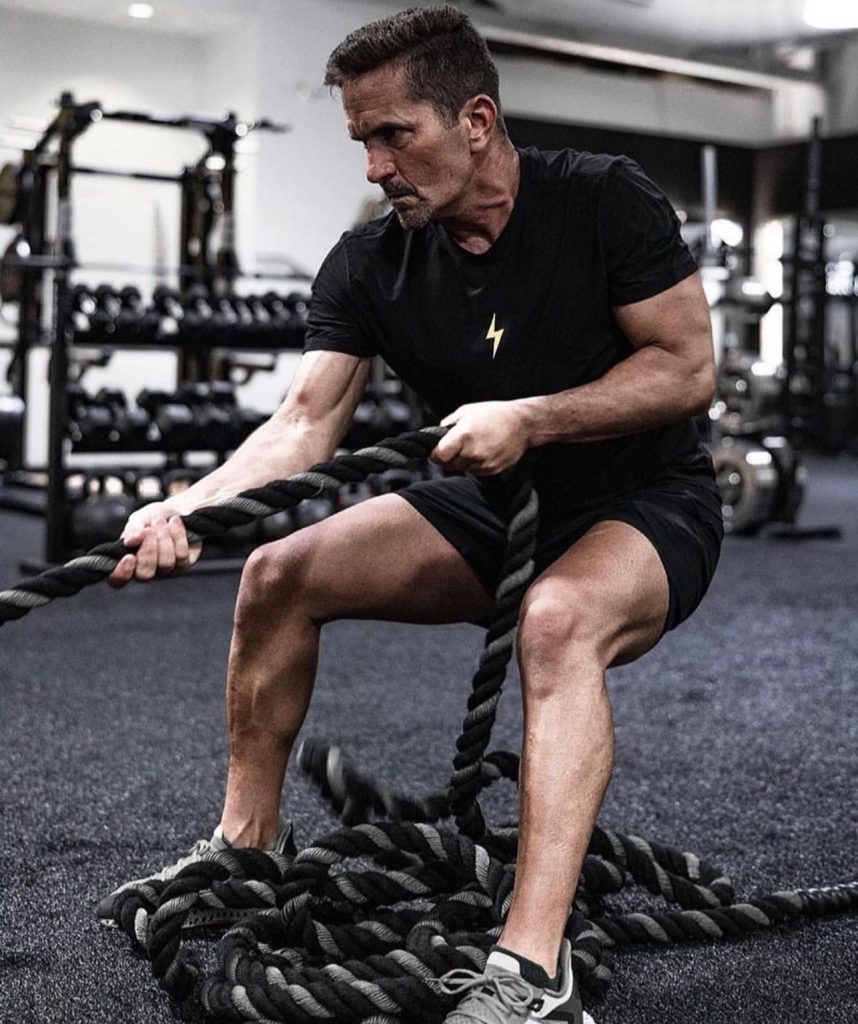
(Photo Courtesy of Khalil Rafati)
“Comfort makes you a coward. Comfort makes me fat. Comfort is not something I seek at all. It’s not that I don’t enjoy comfort. But discomfort is how I can afford to be comfortable in other situations,” he said.
Rafati sees people’s eating habits in America coming from a place of comfort, while people deem his healthy habits as “crazy.” But Rafati believes people should be scared of their eating habits.
When Rafati was at an airport in Austin, Texas, a pilot saw him order a burger with a lettuce wrap, avocado, an egg, all cooked with no seed oils.
Rafati recalled the overweight pilot turning to him and saying, “‘that looks good, man, but I gotta have the bun.’”
At that moment, Rafati said to himself, “No, you don’t need to have the bun — no more so than I needed that shot of dope. People are lazy and people are asleep,” he said.
The Misinformation Crisis
Outside of Dr. Burkhardt’s work in Immunology, she also teaches a class at USC called “More than Prescriptions: An Integrative Approach to Modern Healthcare.” The class addresses topics such as gut health, liver and alcohol, stress and mood, examining supplements and botanicals that are related to whatever the disease state of the week is. One assignment is called “Spot the Snake Oil.”
Multiple students are given supplements, with one of them being the “snake oil seller.” Each student gives a scientific presentation and the rest of the class has to judge which product they think is snake oil.
From ultra-processed foods to a constant feed of rampant health misinformation being spread on social media platforms, social media’s influence on our health has never been more profound. Fear-mongering health headlines and the latest fad diets were once confined to supermarket checkout magazines — now, they live in the palm of your hand 24/7.
“People don’t want to look for information that takes longer than 30 seconds to receive and doesn’t have a fun graphic flying around in the background,” Burkhardt said. “People are addicted to that method of receiving information.”
In an era where social media dictates — and amplifies — not only trends but also deeply ingrained beliefs about health and wellness, the line between inspiration and manipulation is becoming dangerously blurred. The phrase “you are what you eat” has been around since 1826, but in 2025, we are also what we consume — literally and figuratively.
“We used to warn people about going on WebMD because everything says cancer. But now I don’t think people are even going to WebMD, because it takes too long to read through everything. Now it’s easier just to go on TikTok or Instagram, and, you know, have some stranger on the Internet advise people,” Burkhardt said.
“It’s good that people are able to get more information if they want it. But I think that the limitations and the information that you’re getting out of it needs to be better explained, with those sorts of tests like with cortisol, for example.”
“Cortisol” or “Moon face” — what people are describing as a puffy, round face from stress — has gained tremendous traction on social media. Influencers are selling magnesium drinks with the headlines: “You’re not ugly. You just have cortisol face.”
“Stress is one of those sort of easy buzzwords. Oh, you know your face is bloated, or you know you’re dragging in the afternoon,” Burkhardt said. “There are other things that could cause that. One of them might be, you know, really medically serious, and some of it may be like, you just have too much caffeine for too long in the day, and you don’t sleep at night. So it’s hard.” In 2022, Burkhardt launched USC’s Trojan CALM (Cortisol Assessment and Laboratory Measurement), which examines “the interplay between perceived and physiological stress by analyzing cortisol levels from saliva samples and responses to validated surveys.”
“Even good things are stress to our bodies, you know, getting to go home and see your family for Christmas. That’s stress,” Burkhardt said. “We don’t perceive it as stress for most people. If you have a good relationship with your family because you’re excited to go see them and have Christmas, but it is a stressor. I think that’s one of the missing sort of pieces of context around all of this.”
Burkhardt’s research yielded straightforward recommendations for managing stress: increase sleep and engage in communities. Her team found that high levels of cortisol from a lack of sleep can be overcome by participating in extracurricular activities, where people feel a sense of community.
But instead of turning to lifestyle changes like taking the time to socialize with others and find community, or meditating to decrease stress, as Burkhardt suggests, people are turning to supplements being sold on TikTok.
Burkhardt sees this as an expensive Band-Aid solution similar to the popular diabetes drug Ozempic in the context of weight loss.
“For a very long time, with something like weight loss, you had to make lifestyle changes. Well, now you don’t. We have the quick fix, Band-Aid now, and they’re pretty easily available,” Burkardt said.
Burkhardt is not sure if drug companies will ever come up with an injectable for stress, similar to Ozempic, but she believes they will make a lot of money if they do.
“Band-Aid Solutions”
But Band-Aid solutions in health care aren’t always bad, according to Dr. Justin Groode.
Groode founded health startups AxonMD and Patient Advocate Alliance, and sits at the intersection of conventional and alternative medicine as a Columbia-trained MD with a background in holistic medicine.
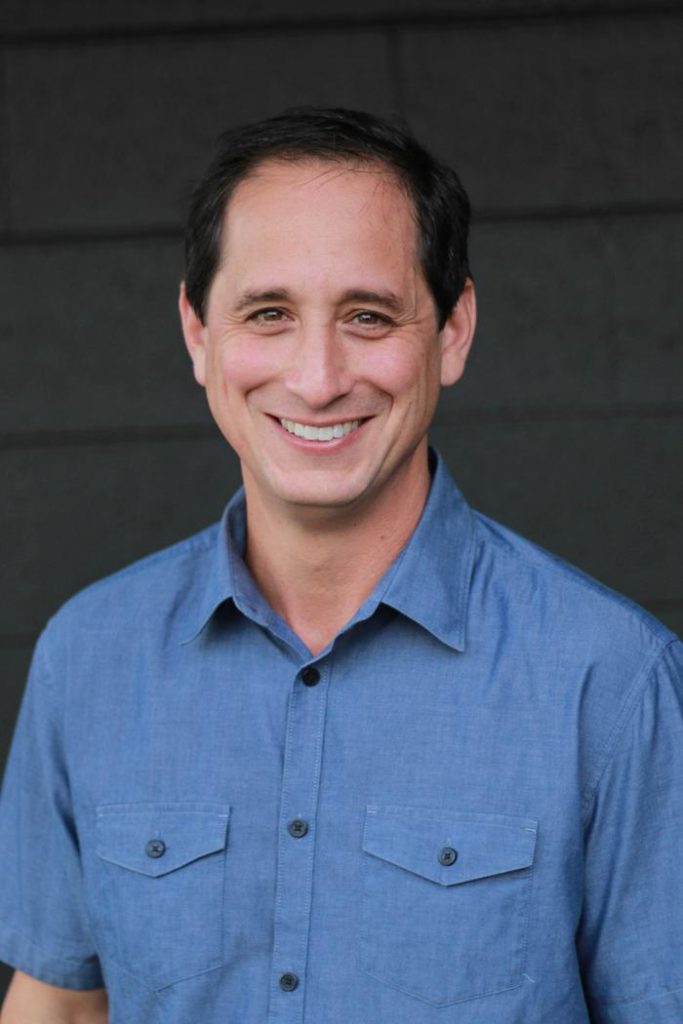
Dr. Justin Groode, co-founder of AxonMD
and Patient Advocate Alliance
(Photo Courtesy of Justin Groode)
He believes that sometimes your body just needs time to heal and taking medications as a Band-Aid solution allows wounds to heal.
“The problem is when we only rely on Band-Aids and never address the wound.”
In the case of Ozempic, he believes it can be a Band-Aid for some, but for others, it can reset their bodies and give them a chance to heal.
“If people use that time to retrain habits and change their microbiome, rewrite neural pathways, especially if they work with a therapist or holistic provider, it can become part of a more sustainable shift,” Groode said.
“I’m not against using something that works quickly,” he said. “Antibiotics can save lives. But they can also cause harm if overused or prescribed without need. That’s the double whammy. Trying to solve one problem without creating another.”
Americans are motivated to look for Band-Aid solutions, Groode said, because they are quick fixes that can immediately ease discomfort — whether that is the discomfort that comes from body aches, weight gain, acne.
“We’re not a lazy culture, but we are addicted to comfort. That’s why people would rather take the pill. Even when deep down, they know the long-term solution requires effort.”
While some people turn to a pill or injection for “Band-Aid healing,” for symptoms like weight gain, brain fog, or hair loss, other Americans are turning towards “holistic practitioners” promising to treat root causes like inflammation, hormonal imbalance and gut dysbiosis, instead of just symptoms like weight gain or acne. The market in the U.S. for these complementary and alternative medicine services is projected to grow 23% in the next decade.
As a physician, Groode is still cautious.
“It’s a little bit disturbing,” said Groode. “Why would you allow somebody who never worked even one day in a hospital to work with, like, actually, really sick people. To me, it’s not so much like a turf situation as much as it’s a patient safety situation.”
But Groode acknowledges the rise of functional medicine as a reaction to the time constraints and limitations of the traditional system. In 15-minute appointments, there often is not room for promoting meaningful change. It does give doctors more “tools in the toolbox,” he said.
“It’s about asking why something is happening, not just treating what’s happening,” Groode said.
However, he acknowledges that seeking this extra care is expensive and most Americans do not have enough disposable income to be able to receive it. A functional medicine visit with an MD can cost upwards of $1,000 and up to $500 for a naturopath, who is not a physician. Not to mention the free time necessary to partake in these practices, and expenses necessary to exercise, sleep enough and eat well.
Although it is expensive, alternative health is a huge market and Americans spend about $30.2 billion in treatments, practices and products, such as supplements.
Ultimately, Groode said the goal should be to help patients build the capacity to sit with discomfort, not just suppress it.
He sees discomfort as necessary for growth, not suffering for suffering’s sake, but discomfort with intention. Meditation, exercise, and sauna are all proven to improve health, but all are uncomfortable at first, he explained.
He believes it is important to be consistently working on bettering ourselves to make us feel better.
“Even though we all have aches and pains and sufferings, right?”
“You don’t become the Dalai Lama overnight. But you do become more tolerant, more present. And eventually, that builds a sense of peace. A sense that you’re working on yourself,” Groode said.
Two Friends Who Saw a Need to Simplify Healthy Online Shopping
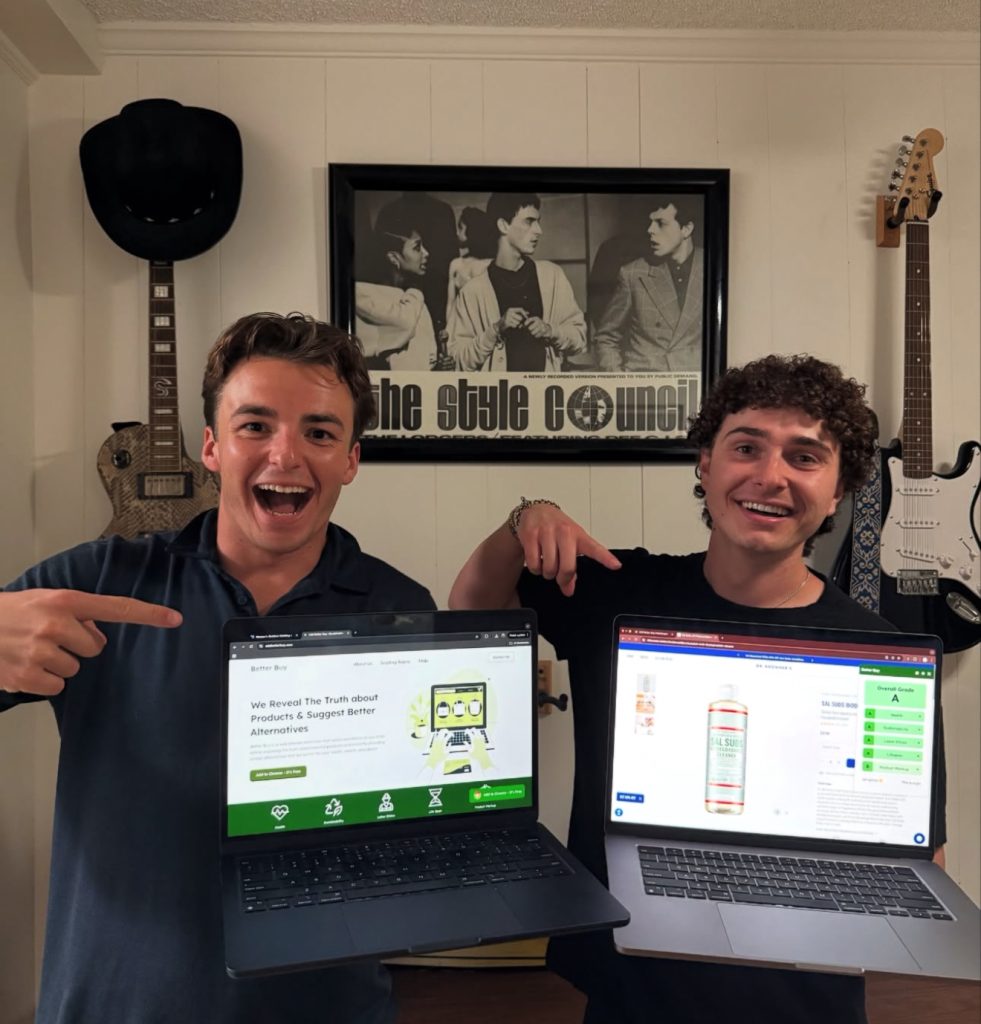
For younger entrepreneurs like Simon Copeman and Zander Mukanos, co-founders of Better Buy, improving your health begins with transparency for consumers. The duo created a web extension that provides transparency about product ingredients and standards, taking the guesswork out of shopping.
“People are putting bad things in their bodies, but it’s not their fault,” Copeman explains. “It’s these corporations that have had this race to the bottom — whether it’s making a bigger margin or cutting costs. And it’s at the expense of the consumer.”
Copeman and Mukanos’ free tool aims to “take the guesswork out of shopping and empower consumers to make informed decisions with just a glance,” because they believe all consumers should have access to find out the truth about a product.
“‘Are you against child labor?’ ‘Yeah, obviously,’ like, ‘Are you against pollution?’ ‘100%.’ ‘Do you like to be healthy?’ ‘Yes.’ But 99% of people don’t shop with those values in mind because it’s just too hard, not enough resources. It’s time-consuming,” said Copeman. “People are really lazy, so we want to make it easy. We want to make smart shopping so easy and effortless that anyone will do it.”
Their brand is not just targeting the wellness-obsessed, it is targeting the average American that does not know where to start. Once consumers download the chrome extension, the Better Buy grading scale rates products from A to F based on sustainability, health effects, labor ethics, lifespan and product markup.
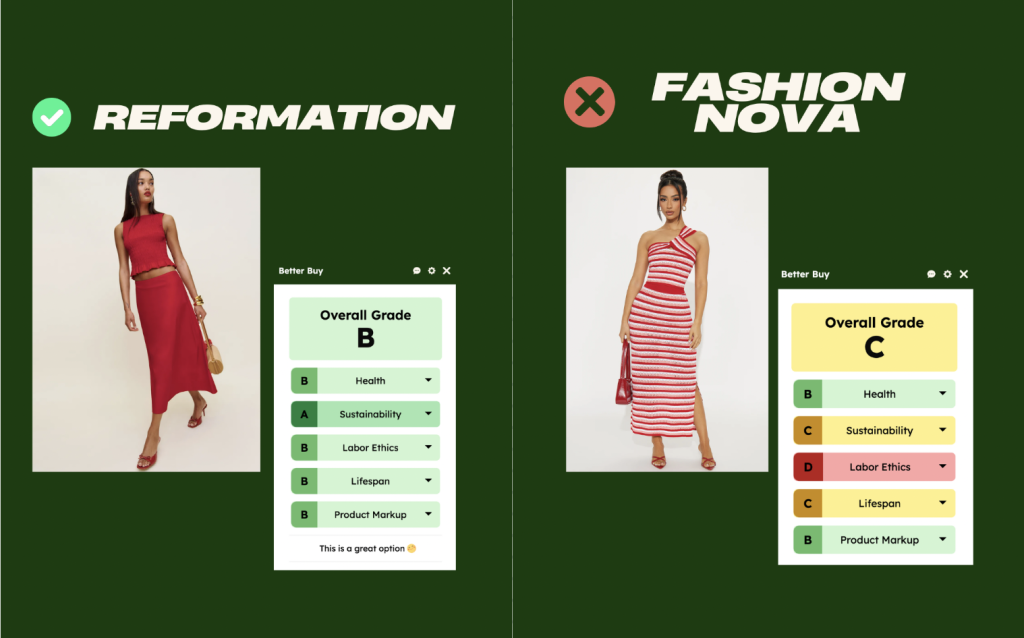
“The people like myself who are doing hours of research, figuring out what’s good and bad, we’re able to provide them a resource that fixes that in a second,” Copeman said.
The extension also offers consumers healthier alternatives to the product they are shopping for to make a healthy lifestyle easier.
Copeman believes that Better Buy’s launch was perfectly timed this March as the FDA starts to phase out the chemicals and dyes in our food supply, and Americans start to wake up to see what really is in their food.
“Gen Z is really coming into their buying power. And this is the generation that’s prioritizing health, sustainability, ethics. You can see it through the brands that are popping up every single day. “ Copeman said. “They’re crushing, which just shows that there’s this high demand for these kinds of products.”
A study from NIQ found that Gen Z consumers prioritize sustainability and social impact, with an 8% increase in performance on clean products from 2023 to 2024.
He also noted that more and more brands circled around organic, natural, ethical labor are popping up, like Veja and All Birds.
Looking Forward
While cold plunges, saunas, and functional tests can all have a place, the ultimate medicine is presence and accurate science-based information.
“None of us are getting out of here unscathed,” Groode said. “Life is hard for everyone. The sooner we realize that, the more fully we can live while we’re here. We’re only here for a few blinks of an eye.”
As the next generation of consumers demands transparency, personalization, and preventative care, we’re seeing a collision of values once seen as opposites. No longer is it doctor versus naturopath, Band-Aid versus root cause, but rather a blending, a recalibration. And Americans are noticing.
“The problem is, if everything’s swinging from such extremes,” Groode said.
The future does not look all gloomy. Although RFK Jr.’s views on vaccines can be detrimental, he might help our country heal the epidemic of chronic disease by altering our food supply for the good.
But until then, it is on consumers to educate themselves with real science backed information. It might take a little longer to find and be a little less interesting than a 30-second social media post, but it might just save your life.
